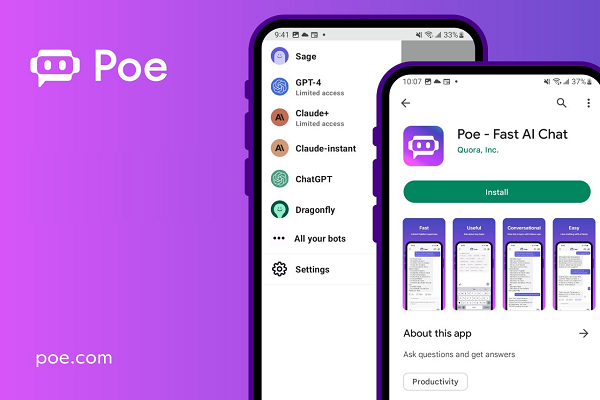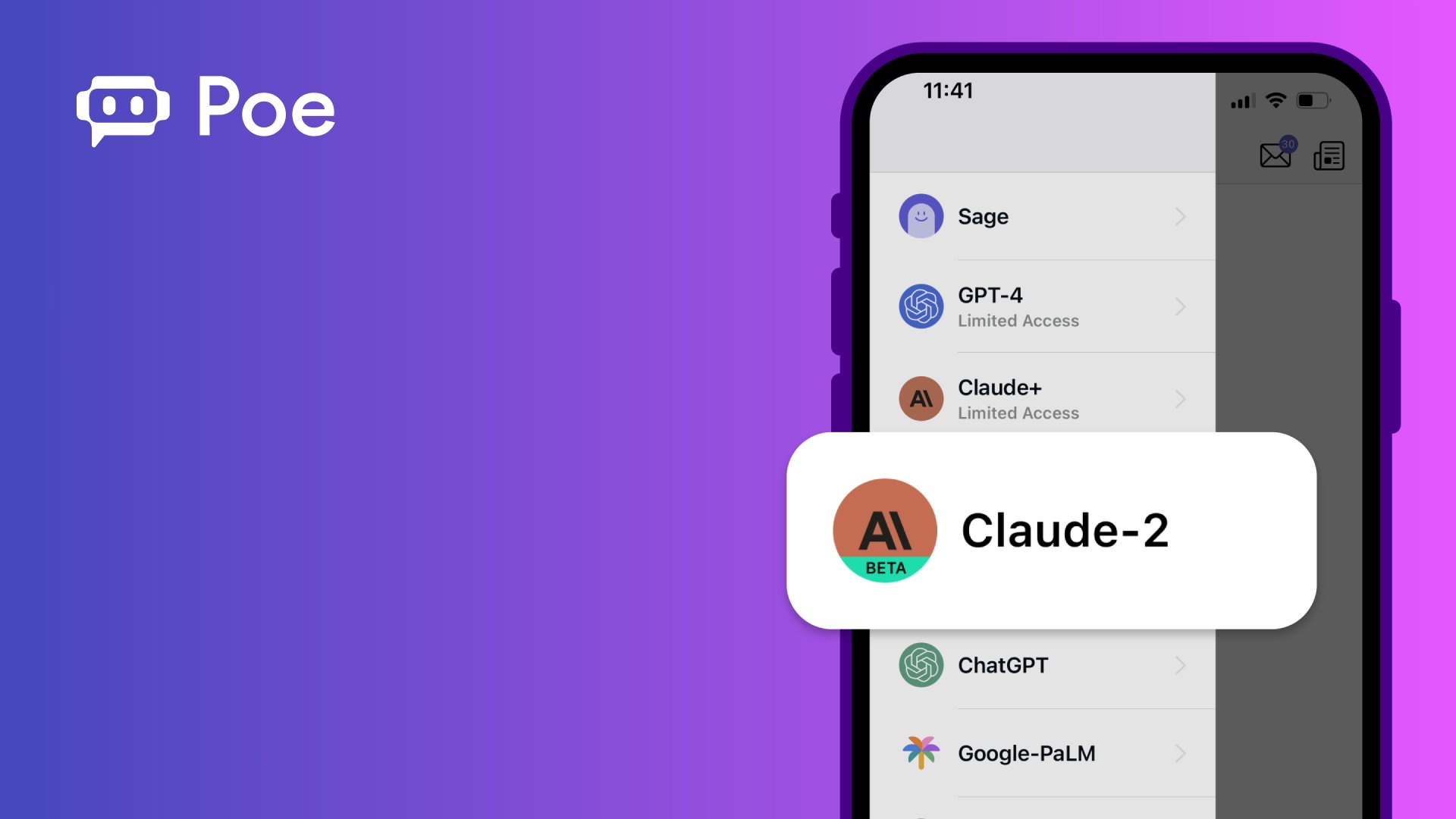Quora’s AI chatbot platform
Poe, is redefining the concept of “creators” by rewarding individuals who craft AI bots. While content creators typically come to mind in the context of social media platforms like TikTok, YouTube, or Instagram, Poe is now compensating bot creators, including those developing “prompt bots” on the Poe platform and server bots integrated with the Poe AI.
This groundbreaking program, launched just last week, is one of the pioneering initiatives to financially recognize the contributions of AI bot builders.
At present, bot creators have two avenues to generate income. In the first approach, if a bot successfully leads a user to subscribe to Poe, the company will promptly share a portion of the subscription revenue with the bot’s creator. The second method involves bot creators establishing a per-message fee, which Quora will remit for every message sent. The latter option is set to become available in the near future.
Quora initially introduced its chatbot app
Poe, to the general public in February. The app allows users to pose questions and receive responses from various AI chatbots, including those from notable organizations such as OpenAI, the creator of ChatGPT, as well as Amazon and Google-backed Anthropic. Beyond serving as a platform for users to experiment with diverse AI technologies in one place, Quora anticipates that the content from Poe will eventually contribute to the growth of its Q&A site, Quora. When Poe’s content meets the requisite quality standards, it will be integrated into Quora, potentially reaching the platform’s vast audience of 400 million monthly visitors.
In the meantime, Poe has been gaining traction in the burgeoning AI chatbot market. According to data from market intelligence provider Apptopia, Poe’s mobile app garnered 253,530 downloads during its first month of public availability. As of October 24th, the app boasts over 18.4 million installations and nearly 1.22 million monthly active users. Nevertheless, Apptopia estimates that Poe is currently generating less than a quarter of a million dollars in in-app purchase revenue per month. However, it’s worth noting that many Poe users may be engaging with the chatbot platform through the web and opting for its $19.99/month or $199.99/year subscription, which makes this revenue figure just one facet of the overall picture.
At present, Poe’s creator monetization program is exclusively accessible to users in the United States and offers compensation of up to $20 for each user who subscribes to Poe due to a creator’s bots. Various scenarios determine this metric, such as when a creator introduces a user to Poe for the first time, leading to eventual subscription, or when a bot guides a user back to Poe, resulting in a subscription. Additionally, if a bot’s paywall appears just before a user subscribes or if users send messages to a bot at a price set by the developer, creators can earn rewards. More expensive bots will have restrictions on the number of users allowed to send messages, and certain bots will be exclusively available to subscribers, according to Quora.
When a user subscribes to Poe, the company allocates $10 for a monthly subscription or $20 for an annual subscription. This sum is subsequently divided among monetizing creators with successful activations and paywalls that lead to subscriptions, as detailed in the company’s developer documentation. Payouts are facilitated through Stripe.
Quora envisions this program as a means for smaller companies and AI research groups to introduce their bots to the public, even if they lack the resources to develop a standalone AI chatbot application. It also functions as a way for Poe to attract new subscribers through an affiliate-like program, enhancing its competitive edge against a multitude of AI chatbot apps that are already flourishing on mobile devices, outpacing ChatGPT and others.
Quora’s CEO, Adam D’Angelo
expressed optimism about the future of this endeavor, anticipating success across a wide spectrum of bot categories, encompassing tutoring, knowledge sharing, therapy, entertainment, virtual assistants, analysis, storytelling, role-playing, and content generation in various media formats like images, videos, and music. D’Angelo believes that the nascent bot market offers ample opportunities to provide valuable services to the world while generating income simultaneously.
Read more (Inovation)











